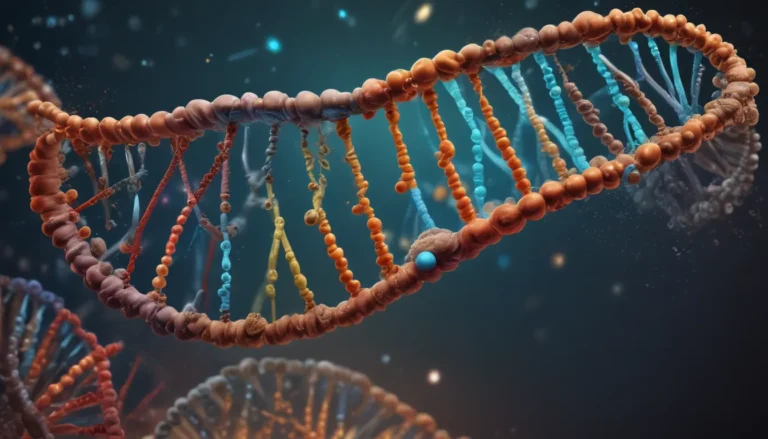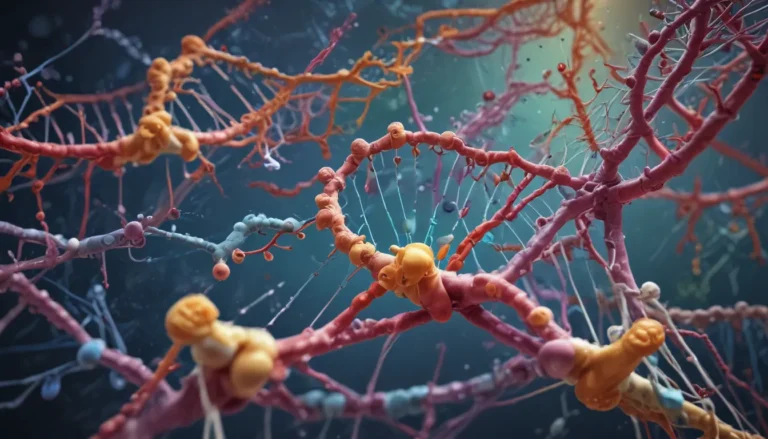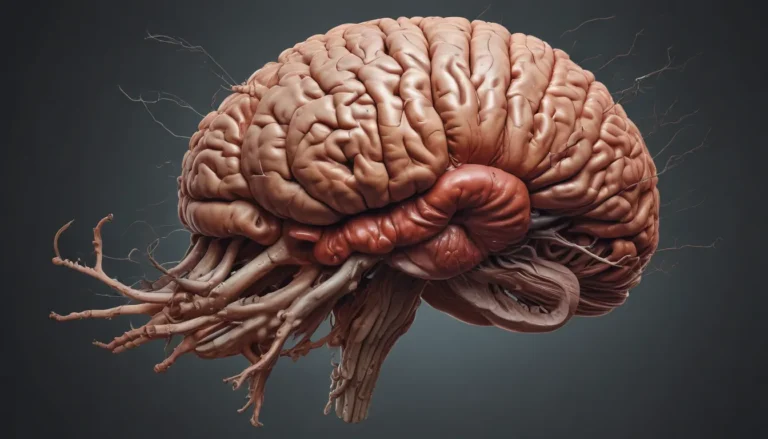A Note About Images: The images used in our articles are for illustration purposes only and may not exactly match the content. They are meant to engage readers, but the text should be relied upon for accurate information.
In the captivating realm of biology, a groundbreaking technique known as Polymerase Chain Reaction (PCR) has revolutionized the field of molecular biology. Developed by the ingenious Kary Mullis in the 1980s, PCR has opened doors to a myriad of scientific discoveries and advancements, paving the way for unprecedented precision and efficiency in amplifying specific DNA segments. This powerful method has not only transformed diagnostics, forensic analysis, and genetic research but has also played a pivotal role in unraveling the molecular mechanisms behind various diseases. Let’s embark on a thrilling journey into the world of PCR as we explore 17 enigmatic facts that highlight its significance, applications, and potential future advancements.
The Revolutionary Impact of PCR
PCR, or Polymerase Chain Reaction, is a transformative technique that allows scientists to amplify specific segments of DNA, ushering in a new era in genetics and molecular biology.
The Inventor Behind PCR
In 1983, Kary Mullis introduced the world to PCR, a method for which he was honored with the Nobel Prize in Chemistry in 1993. Mullis’ groundbreaking discovery has forever changed the landscape of DNA analysis and diagnostics.
The Heating and Cooling Cycles of PCR
The PCR process involves three key steps: denaturation, annealing, and extension. By cycling through periods of heating and cooling, DNA can be exponentially amplified, resulting in millions of copies of the target DNA sequence.
Diverse Applications of PCR
PCR techniques, such as qPCR and RT-PCR, have a wide range of applications, from studying gene expression to identifying new species, with continuous advancements for an even greater impact.
Unveiling the Role of PCR in Various Fields
- Forensic Investigations: PCR has been instrumental in analyzing trace amounts of DNA evidence in forensic science, aiding in solving numerous criminal cases.
- Paternity Testing: PCR plays a crucial role in determining biological relationships by comparing the genetic profiles of individuals.
- Medical Diagnostics: PCR has revolutionized medical diagnostics, enabling swift and accurate detection of infectious diseases, genetic disorders, and cancer markers.
- Applications in Agriculture: PCR is employed in agriculture to identify genetically modified organisms (GMOs) and bolster crop development and food production.
Enhanced Techniques in PCR
PCR has evolved to include advanced variations like qPCR, RT-PCR, Nested PCR, and Multiplex PCR, each serving specific purposes to enhance the specificity and efficiency of DNA amplification.
Exploring Advanced PCR Techniques
- Quantitative PCR (qPCR): Allows for the measurement of gene expression, offering valuable insights into gene regulation and disease-associated genes.
- Reverse Transcription PCR (RT-PCR): Converts RNA into cDNA and amplifies the target gene, widely used in gene expression studies.
- Nested PCR: Improves the specificity of DNA amplification by involving two rounds of amplification, useful in detecting low abundance targets.
- Multiplex PCR: Enables the simultaneous amplification of multiple DNA sequences in a single reaction, expediting genetic testing.
PCR: Beyond Limits and Boundaries
The versatility of PCR extends to unraveling genetic mysteries in ancient remains, monitoring DNA amplification in real-time, and contributing to environmental studies and absolute quantification of DNA targets.
Unleashing the Limitless Potential of PCR
- Discovery of New Species: PCR has facilitated DNA barcoding to identify and classify species rapidly, uncovering new species and bolstering biodiversity studies.
- Real-time PCR: Allows continuous monitoring of DNA amplification, providing accurate quantification of initial DNA amounts.
- Applications in Environmental Studies: Widely used to identify microorganisms, assess biodiversity, and detect harmful pathogens in water and soil samples.
- Digital PCR: Ensures absolute quantification of DNA targets with unparalleled sensitivity and precision.
The Evolution of PCR Techniques
PCR continues to evolve and advance, with new variants and technological advancements being continually developed, expanding its capabilities and enhancing its impact in various fields of research and application.
Embracing the Significance of PCR
The Polymerase Chain Reaction (PCR) stands as one of the revolutionary techniques in molecular biology, empowering scientists and researchers with unprecedented insights into genetics, diagnostics, forensics, and biotechnology, shaping the future of scientific exploration.
Journeying Deeper into Molecular Biology
Seize the opportunity to expand your knowledge and passion for the astonishing world of life sciences. Immerse yourself in the cutting-edge diagnostics utilized in virology labs worldwide, uncover the transformative role of biotechnology in agriculture and medicine, and relish the wonders of PCR and its profound impact on human health.
FAQs: Unveiling the Mysteries of PCR
-
What is PCR?
PCR, or Polymerase Chain Reaction, is a technique for amplifying specific regions of DNA through cycles of denaturation, annealing, and extension. -
Who invented PCR?
Kary Mullis, an American biochemist, invented PCR in 1983 and received the Nobel Prize in Chemistry in 1993 for his revolutionary work. -
What are the applications of PCR?
PCR has diverse applications in genetic research, forensic analysis, disease diagnosis, paternity testing, and mutation identification. -
How does PCR aid in disease diagnosis?
PCR can detect pathogens in DNA samples with high sensitivity, making it a valuable tool for diagnosing diseases. -
Is PCR only utilized in research laboratories?
While PCR is widely used in research labs, it is also essential in clinical settings for diagnostic purposes. -
Can PCR be used for paternity testing?
Indeed, PCR can determine biological relatedness through the comparison of specific DNA sequences. -
How long does a PCR reaction take?
The duration of a PCR reaction varies depending on the DNA sequence and protocol, typically ranging from 2-4 hours. -
Is PCR a reliable technique?
Yes, PCR is known for its reliability and is widely accepted as a gold standard method for DNA amplification. -
What is real-time PCR?
Real-time PCR, or quantitative PCR (qPCR), allows for monitoring the amplification of DNA in real-time, providing insights into initial DNA levels. -
Can anyone perform PCR?
While the basic principles of PCR can be understood by anyone, the technique is typically performed by trained professionals in lab settings.
Embark on your scientific journey, exploring the vast mysteries of PCR and uncovering the wonders of molecular biology. Let your curiosity drive you as you delve into the intricate world of genetics, diagnostics, and beyond. Explore the limitless possibilities and transformative impact of PCR in shaping the future of scientific discovery.






